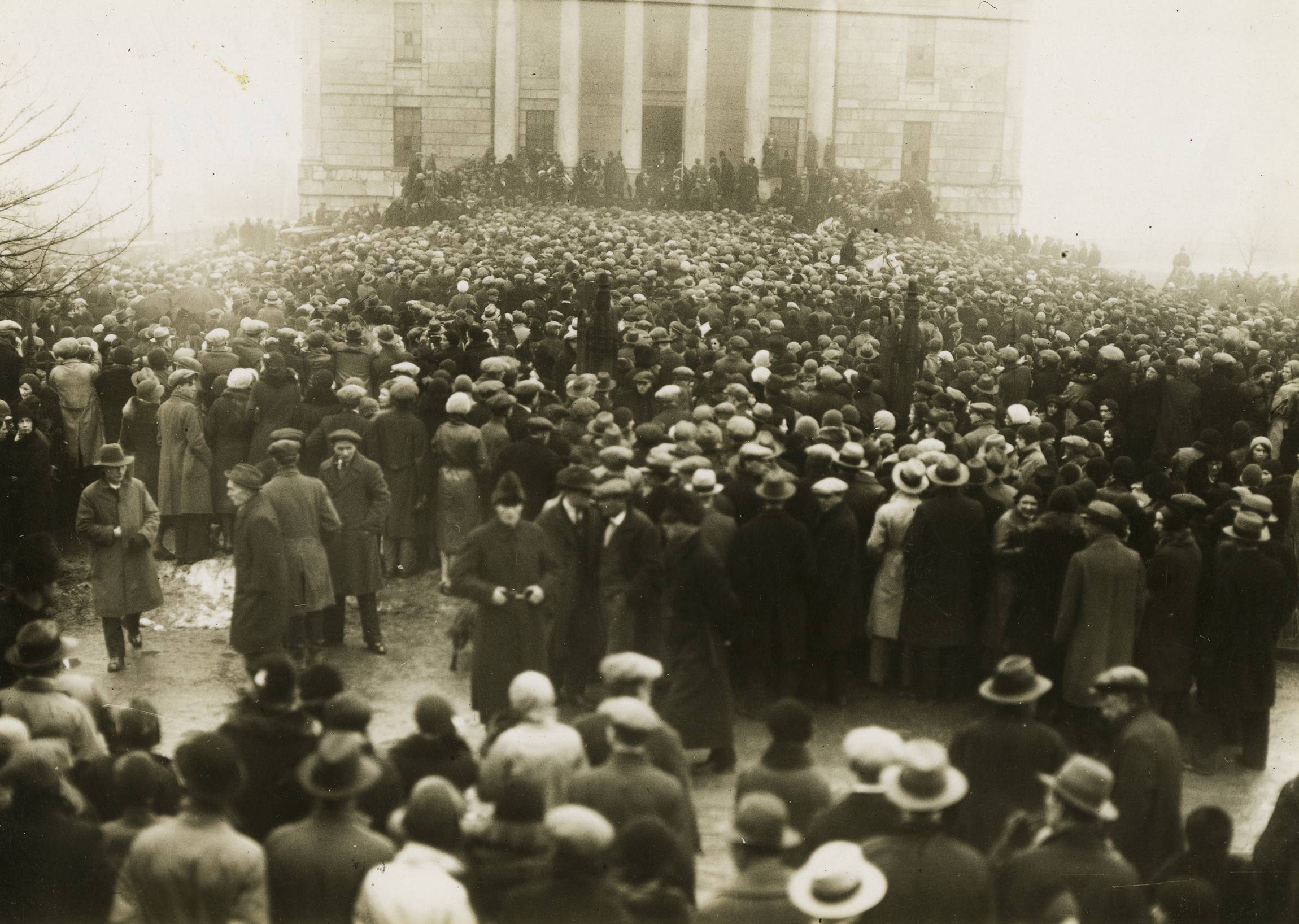1932
Newfoundland riot leads to loss of independence
From 1854 to 1907 Newfoundland was a British colony with local responsible government. In 1907 London granted the colony the status of Dominion, on a par with Canada, Australia and New Zealand. It raised troops to fight in World War I; the Newfoundland Regiment suffered horrible losses at the Battle of the Somme. However, unlike other Dominions, it did not seek to sign the peace treaties as an independent nation nor did it want a seat in the new League of Nations.
Newfoundland’s political culture was notoriously corrupt and its resoure-based finances were shaky, especially as the Great Depression dawned. Both facts caused the British government considerable anxiety. This concern was heightened on April 5, 1932 when a crowd of 10,000 marched on the House of Assembly demanding reform. Prime Minister Sir Richard Squires, largely suspected of dipping into the public purse for his own enrichment, narrowly escaped the mob, the building was sacked and the police were handled roughly. Looting a liquor store did not help quell the unruly citizenry.
The ensuing election (which resulted in Squires’ crushing defeat) called on the British for help. A commissioner was sent from London who recommended that Newfoundland could no longer govern itself. The legislature was suspended and a British governor ruled the island until after World War II.

